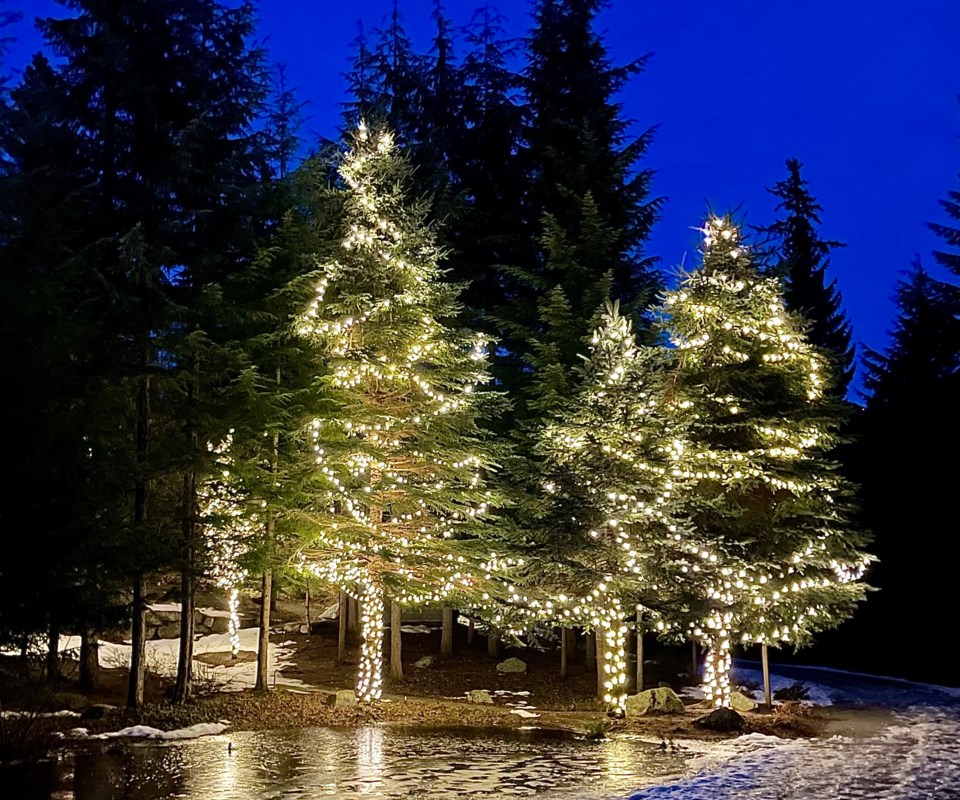I think we had all hoped to be planning big family Christmases or celebrations this year, with presents to share and hugs all around.
Most of us are double vaccinated and were aiming for a return to (almost) normal. But now we are not only dealing with a new variant of the coronavirus, Omicron, but B.C. has also spent the last three weeks dealing with floods and landslides unlike anything we have seen for decades, putting 17,000 people out of their homes. At least four people lost their lives in the extreme weather events.
The storms devastated highway and rail routes from the West Coast to the rest of Canada, disrupting our supply chains and, of course, our delivery services at a time when many are taking to their devices to shop online for Christmas.
So maybe we need to take a deep breath, stop for just a moment and consider what the holiday season is actually all about.
For most of us it is about being with those we love, thinking about the year that was and also thinking about the year to come. This, despite the fact the holidays have been made into a mad shopping event. But that is not what the holidays are about at their heart.
Thousands of people will not be in their homes for the holidays due to the flooding—in fact they may never be in their homes again as some of the structures are so badly damaged.
Some people are now facing Christmastime without loved ones.
I was thinking about all of this, and the weight everyone seems to be carrying right now, and I was wondering where I was going to find the Christmas spirit in the coming days as I prepare to welcome home my kids from university and try and see other family and friends in small gatherings.
And as I huddled down deeper into my coat on my chilly, dusk walk, I rounded a corner of the Valley Trail and in front of me towering up into the cobalt-blue sky were fir trees adorned with lights, sparkling off the icy ground below.
I had to stop.
And in that moment I realized that, just as everyone has been doing since the pandemic began, all we can do is just reach out to each other and support our families, friends, neighbours, community and those in need as best we can.
Maybe that is lighting up trees in your garden to brighten up a passersby’s day. Maybe it is giving to the food bank or a Christmas hamper program or volunteering. Maybe it is giving yourself the gift of saying, “You are doing the best you can and that is enough.”
There are so many people thinking of others right now that I can’t help but feel that this is what will make this pandemic- and weather-ravaged Christmas season survivable.
I love, for example, that Santa Claus has an elf working in Creekside who has put out a special mailbox for kids to send their letters to the jolly old guy (Yes, the “elf” is answering them all!).
And in a strange twist, the fact that mail is being disrupted by all the highway closures has made it even easier to decide to shop locally for everything and support our own local community and businesses. (Check out this week’s Outsider column on pg. 37 for more ideas on local gifts.)
B.C. just marked its annual Buy Local week, which ended Dec. 5, but I think we should just keep focusing on buying local all month.
Amy Robinson, founder and executive director of LOCO BC, tells us that, “By making just 10 per cent of our annual purchases with local businesses, it would help create more than 14,000 jobs and retain $4.3 billion in the local economy.” (Sadly, it can’t create the workers themselves to fill the jobs!)
LOCO BC is a local business alliance working to create a diverse, vibrant local economy by strengthening small and mid-sized businesses, and which organizes Buy Local Week.
We know from previous research done by Robinson’s group that for every $100 spent with a B.C. local business, $63 is re-circulated back into our economy (versus $14 for multinational corporations). For restaurants, it’s $68.
And with the climate crisis top of mind right now, LOCO BC in partnership with Vancity has looked into how purchasing locally can help on that front, too. Turns out that buying local products reduces greenhouse gases from five to 66 per cent compared to shopping for imported products.
Let’s not forget that local businesses shop locally too, employ locals, live in the community and support so many good causes, events and sports teams that they are in the hero category these days.
According to Coast Capital, which polled B.C. residents, spending is expected to return to some pre-pandemic levels with a third of British Columbians getting ready to spend above what they did in 2020. And nearly two-thirds of the people polled said that they are going to shop at stores more this year.
So, let’s keep focused on sharing the love this holiday season, on accepting that everyone is doing the best they can under the circumstances, and if we are shopping, let’s keep it local.




